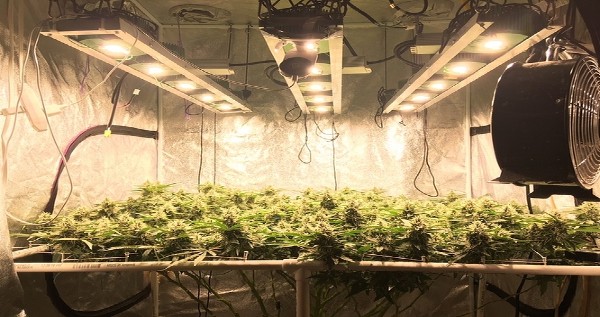
Over 50% of Texans Wants To Legalize Weed
The struggle to decriminalize marijuana in some Texas cities has reached a new level. According to a recent poll, a majority of Texas voters support marijuana legalization. Around four in five people believe cannabis should be allowed for recreational or medical use. According to the University of Texas/Texas Politics Project Poll, a substantial majority (72 percent) support decriminalizing cannabis by making the misdemeanor punishable by a fine and citation rather than jail time.
The survey clarifies that Texas people are eager for reform as lawmakers prepare for the 2023 session. The survey shows that 55% of respondents believe that cannabis use should be legalized for any purpose and in small amounts. Only 17 percent of respondents felt marijuana shouldn’t be legalized, while another 28% thought it should only be used medically.
Democrats were the most pro-reform group, with 72% supporting vast legalization. Another 19% argued that it should only be permitted for medical purposes. Independents came in second, supporting legalization for all purposes by 57% and medical cannabis legalization just by 31%. Republicans were the least enthusiastic, although even they agreed that cannabis should be legalized for all uses (41%) and for medical use alone (36%).
Separate questions in the poll also asked Texans if they “favor or oppose lessening the punishment under State’s law for the use or possession of minor amounts of cannabis to a reprimand and a fee,” which practically equates to a decriminalization model. The plan received support from the majority (72 percent). That includes responders from almost all demographic groups questioned, including Democrats (84%), Republicans (63%), and Independents (66%).
In the next legislative session, Texas legislators will have the opportunity to adopt such a change. Although it is unclear whether the conservative lawmakers would again ignore public opinion. Several reform proposals have already been introduced in the Legislature for 2023. These include legislation to legalize adult-use marijuana, expand the state’s restricted medical cannabis program, and modify hemp restrictions. The likelihood of such plans becoming law, however, is still uncertain.
Cannabis decriminalization legislation was approved by the House in 2019, but the Senate did not move it forward during that session. Since then, lawmakers have been unable to support more comprehensive cannabis legislation throughout recent sessions. Gov. Greg Abbott (R) stated that he doesn’t think people should be imprisoned for possessing small amounts of marijuana. The governor falsely asserted that the policy had already been enacted statewide.
With a margin of error of +/- 2.89 percentage points, this most recent University of Texas poll interviewed 1,200 self-identified registered voters between December 2 and 11. It adds to several earlier surveys highlighting how ready Texans are for the reform of cannabis laws.
A survey conducted last year shows that a sizable majority of Texans, including the majority of Republicans, support even more sweeping changes to legalize cannabis for adult use. Another poll revealed that over 90% of respondents believe cannabis should be legalized for some usage, while 60% of people in the state support making marijuana legal “for any use.”
Additionally, a study conducted in June indicated that Texas residents favor legalizing marijuana more than they do President Joe Biden or the state’s top elected authorities. In September, House Speaker Dade Phelan (R) stated that he would attempt to pass criminal justice reform in the 2023 term. He once more voiced support for reducing marijuana possession penalties.
Wiscoinson Governor Pushes for Marijuana Legalization, Again
The likelihood of Wisconsin legalizing recreational marijuana is not necessarily remote. This is because Governor Tony Evers plans to include the matter in the budget he will present to lawmakers early next year, says WPR.
In a Tuesday interview, Evers stated, “It will be in the budget.” “There is no doubt about that.” Users must be 21 to purchase cannabis under Evers’ new legalization initiative. The initiative is anticipated to yield $166 million in money that Evers intends to use to help finance schools.”
However, he suggested that Republican politicians might be more inclined to legalize medical marijuana. According to Evers, who defeated Republican candidate Tim Michels in this year’s midterm elections, “There’s an increasing number of folks in the Legislature who could be inclined to go in the direction of medicinal marijuana .” If the Legislature can unite behind medicinal marijuana, he would sign that bill.
Nonetheless, leading Republican Senator Devin LeMahieu believes otherwise. “I don’t think we still have the backing in our group even for medical marijuana,” LeMahieu told 27 News. But it’s definitely something they’ll consider as a group in the future.
While medicinal cannabis has been a difficult sell to the Wisconsin state authority, the general people are enthusiastic about it. According to a 2019 Marquette University Law School study, 83 percent of voters supported medicinal marijuana legalization.
A recent Marquette poll indicated that 61 percent of Wisconsin respondents supported recreational marijuana legalization, including most Democrats and Republicans.
Despite widespread public support, Evers admitted that his initiative to legalize recreational cannabis may fail in the Legislature.
According to Evers, even if the people of Wisconsin favor recreational marijuana in large numbers in polling, he is unsure if the Republicans are ready yet. All he knows is that there is chatter on the Republican side about medicinal marijuana, from what I’ve heard.
Mississippi Regulators Announce Changes to Medical Cannabis Regulations
According to the National Law Review, the Mississippi Department of Health wants to change the state’s medical cannabis legislation. Changes are suggested for processors, cultivators, testing facilities, disposal businesses, transportation companies, labor advertising, permits, promotion, and registry/ID cards.
Among the prominent ones is a clause stating that a qualified patient must “attend a follow-up visit with the same practitioner the patient first visited not just under six months after the time the practitioner granted the practitioner certification.” Another rule states that “although cannabis enterprises can have an established online and social media presence, they cannot advertise photos or images of cannabis or cannabis products on these sites.”
MORE WEED NEWS, READ ON..
THE MARIJUANA INDUSTRY GETS FOOLED AGAIN, AND AGAIN, AND AGAIN.


